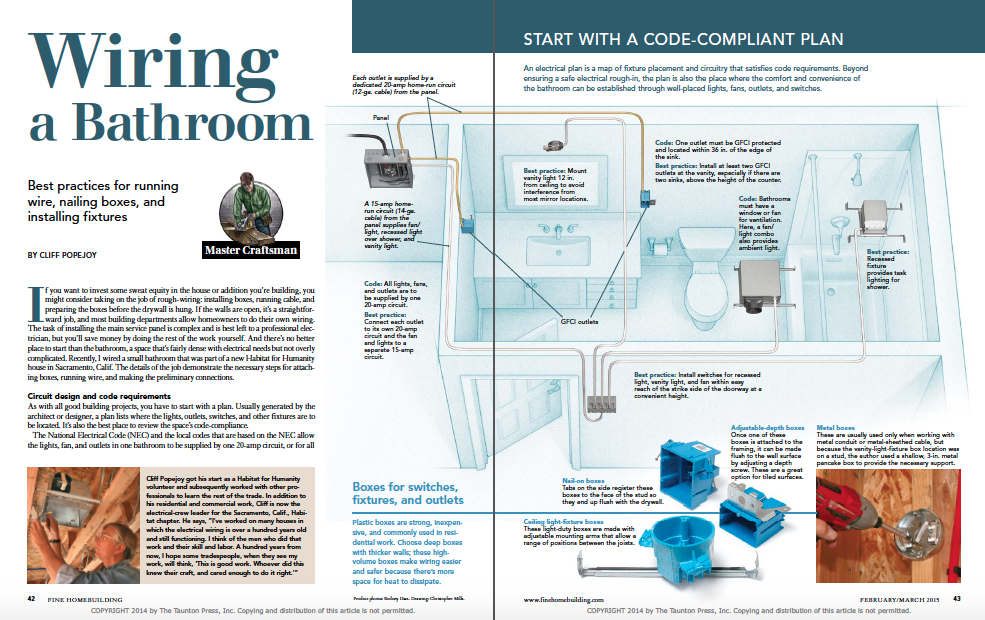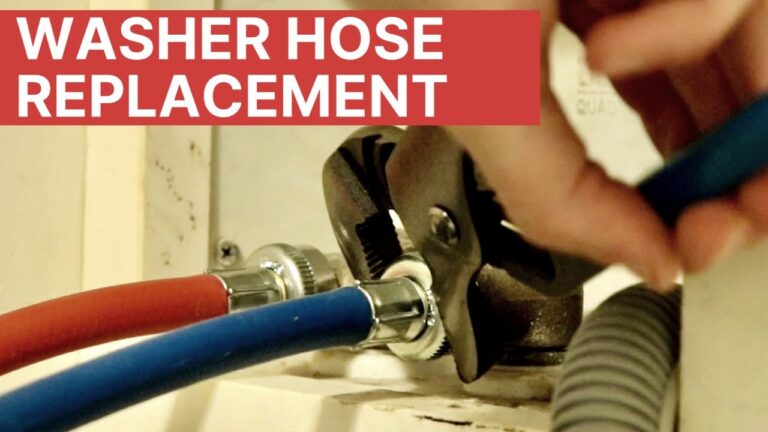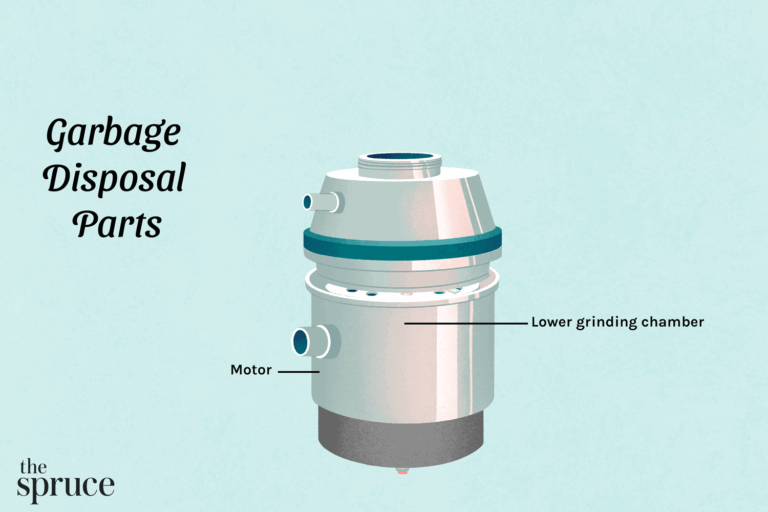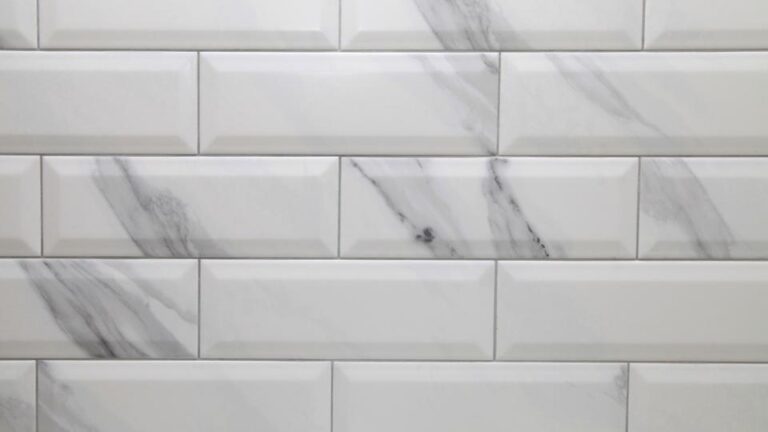What Kind Of Electrical Wire Do I Need In A Bathroom?
Installing electrical wiring in a bathroom is an important part of most home improvement projects. Electrical wiring is essential for powering lights, fans, outlets, and other electrical fixtures in a bathroom. Before you begin any wiring project, it is important to understand which kind of electrical wire is necessary for the job. In general, the type of electrical wire you need in a bathroom is UL-rated for wet locations, such as the Southwire Romex SIMpull CU NM-B cable. This type of electrical wire is designed to withstand moisture and is suitable for most standard bathroom wiring projects. Be sure to check local codes and regulations before beginning your project, as the type of electrical wire you need may vary depending on your location.
Overview of Electrical Codes for Bathrooms
When planning a bathroom remodel, it’s important to consider the various electrical codes and regulations that must be met in order to ensure your safety and the safety of your family. Knowing what kind of electrical wire you need for your bathroom can help you make sure you are following all the necessary codes. This article will provide an overview of the electrical codes for bathrooms and what type of electrical wire is best suited for the job.
The National Electrical Code (NEC) is the most widely accepted set of electrical codes and standards in the United States. This code outlines the minimum requirements for the installation and maintenance of electrical wiring, equipment, and appliances in residential and commercial buildings. According to the NEC, any electrical wiring in a bathroom must be installed in a wet or damp location. This means that the wire must be rated for wet locations and must be enclosed in a conduit or raceway that is designed for wet locations.
The most popular type of electrical wire for bathrooms is THHN or THWN wire. This type of wire is rated for both wet and dry locations and is available in a variety of gauges. The NEC also requires that the wire be secured in a conduit or raceway and the conduit must be sealed to prevent water from entering. Additionally, ground fault circuit interrupters (GFCI) must be installed in bathrooms to protect against electrical shocks.
In summary, when selecting electrical wiring for a bathroom, it’s important to consider the applicable electrical codes. THHN or THWN wire is usually the best option for bathrooms and should be installed in a conduit or raceway that is rated for wet locations. It’s also important to install GFCI outlets to protect against electrical shocks. Following the electrical codes will ensure that your bathroom is safe and up to code.
Types of Electrical Wire for Bathroom Installations
When tackling a DIY home improvement project such as installing electrical wiring in a bathroom, it is important to know which type of electrical wire is best for the job. Electrical wiring for bathrooms needs to be up to the task of handling the high moisture levels found in the environment, as well as the increased risk of electrical shock. In this post, we’ll look at different types of electrical wire that are suitable for bathroom installations to help you make an informed decision.
For bathroom installations, the most common type of electrical wire used is Romex wire. This type of wire is a combination of plastic and copper, and it’s designed to be durable and resistant to moisture. Romex wire is also relatively easy to work with, making it a good choice for DIY projects.
If you plan to install electrical wiring in a wet area, such as near a bathtub or sink, you’ll need to use a special type of electrical wire known as wet-rated wire. This type of wire is designed to be water-resistant, so it won’t be damaged by exposure to moisture.
Finally, it’s important to note that you should never use aluminum wire for bathroom installations. Aluminum wire is not suitable for wet environments, so it should be avoided in bathrooms.
By taking the time to research the right type of electrical wire for bathroom installations, you can ensure that your DIY project is up to code and safe for use.
Factors to Consider When Choosing Electrical Wire for Bathrooms
When it comes to selecting the right electrical wire for a bathroom, there are a few factors that should be taken into consideration. The type of wire used must suit the application, the potential for moisture, and the electrical environment. In this article, we will discuss the different types of electrical wire available, and the factors that should be taken into consideration when selecting the right type for your bathroom.
First and foremost, it is important to understand the type of environment in which the wire will be used. A bathroom is likely to experience higher levels of moisture than other areas of the home, and therefore the wire must be able to withstand these conditions. An indoor rated wire is typically not suitable for a bathroom installation, as the higher moisture levels can result in corrosion and other damage to the wiring.
The National Electrical Code outlines the types of wiring that are suitable for use in wet locations, and a bathroom falls into this category. The type of wire that should be used in this location is typically referred to as “waterproof” or “marine-grade” wire. This type of wire is designed to be resistant to moisture, as well as to withstand the effects of humidity.
It is also important to consider the type of application that the wire will be used for. Most bathrooms are equipped with a variety of electrical devices, such as lighting fixtures, outlets, and appliances. Each of these devices will require a different type of wiring, and the wire must be rated for the specific application. For example, a bathroom light fixture will usually need a 12-gauge wire, whereas a bathroom outlet may require a 14-gauge wire.
By taking the time to understand the different types of electrical wire available and the factors that should be taken into consideration, you can ensure that you have the right wiring for your bathroom. This will help to ensure that your bathroom is safe and compliant with local electrical codes.
Safety Considerations for Installing Electrical Wire in Bathrooms
Electrical wiring in bathrooms needs to be done with utmost caution. It is essential to ensure that any electrical installations in bathrooms are done in accordance with the local building codes and safety regulations. It is also important to consider the humidity levels in the bathroom, as this can cause electrical wires to corrode more quickly. When installing electrical wires in bathrooms, the type of wire used must be resistant to high levels of moisture. For this reason, it is typically recommended to use wires with sheathing or insulation that is moisture resistant. Additionally, it is important to make sure that the electrical wires are firmly secured and out of reach of potential water sources or splashes. Finally, it is necessary to ensure that the circuits are properly grounded to prevent any risk of electric shock. Following these safety considerations can help to ensure that the electrical wiring in bathrooms is installed safely and correctly.
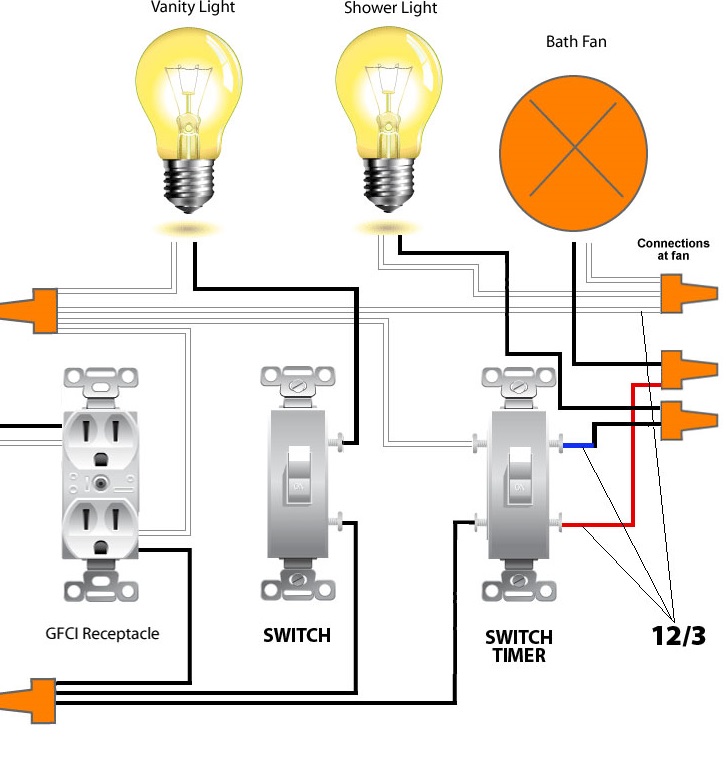
Cost of Electrical Wire for Bathroom Installations
When it comes to wiring a bathroom, it’s important to choose the right type of electrical wire. Different electrical wires have different costs, and it’s important to choose one that meets your budget and fits your needs. The type of electrical wire you need will depend on the wiring setup in your bathroom and the type of fixtures you are installing. Knowing the cost of electrical wire for bathroom installations can help you make the best decision for your project.
The cost of electrical wire for bathroom installations can vary based on the type of wire, the length of wire, and the number of wires needed. The most popular types of electrical wires are Romex, THHN wire, and UF wire. Romex is the most cost-effective option, and it is suitable for standard wiring projects, such as lighting fixtures and outlets. THHN wire is typically more expensive, but it is more durable and can be used in more complex wiring setups. Finally, UF wire is the most expensive, but it is ideal for wet areas, such as bathrooms and other areas where water is present.
When estimating the cost of electrical wire for bathroom installations, it’s important to factor in the cost of the wire, labor, and any other materials needed for the job. It’s also important to consider the type of fixtures you are installing. Some fixtures require more wiring than others, so it’s important to factor in the cost of the additional wiring when estimating the total cost of the project. Finally, it’s important to consider the local codes and regulations. Some areas require special wiring for certain types of fixtures, so it’s important to check the local codes before beginning a project.
Guidelines for Installing Electrical Wire in Bathrooms
When it comes to installing electrical wires in your bathroom, there are important considerations to take into account. Not all electrical wiring is suitable for use in wet and humid environments, so it’s important to ensure that the wiring you use meets the necessary safety standards. In this guide, we’ll outline some of the steps you should take to ensure that the electrical wiring in your bathroom is properly installed and safe.
First, you must take into account the type of electrical wiring that’s recommended for use in a bathroom. Generally, metal clad wiring is the best option, as it has a durable outer layer to protect the wiring from moisture and potential wear and tear. You should also ensure that the wiring is UL-listed and that it meets the local building codes for electrical wiring in a bathroom.
It’s also important to make sure that the wiring is installed correctly. This means that you should make sure that the wiring is connected to a GFCI circuit breaker and that it’s properly grounded. You should also ensure that the wiring is secured properly and that it’s not exposed. Finally, make sure that the wiring is properly labeled so that you can easily identify it in the future.
By following these guidelines, you can ensure that the electrical wiring in your bathroom is properly installed and safe. Keep in mind that you should always consult a professional if you’re unsure about any aspect of the installation process. With the right wiring and the right installation, you can ensure that your bathroom is a safe and comfortable place to be.
Troubleshooting Problems with Electrical Wire in Bathrooms
It’s no secret that electrical wiring in bathrooms can be tricky, and often requires specialized equipment and expertise. But understanding the types of wiring involved can help make the job easier. When it comes to wiring for a bathroom, the primary concern is safety. The National Electrical Code (NEC) outlines strict regulations about the types of wiring, and the materials used, to ensure the safety of all users. Generally, the type of wire used in the bathroom depends on the size and purpose of the room, as well as the level of moisture present.
For example, the NEC mandates that GFCI (ground fault circuit interrupter) outlets be installed near any sink or bathtub in order to protect from electrocution. Additionally, the wiring for a bathroom must be rated for damp or wet conditions, and it must be installed using approved methods. This means that the wiring must be protected from water damage, and should be installed in conduit or other approved materials.
When it comes to selecting the right type of electrical wire for a bathroom, it is important to understand the various types of wiring available and the specific requirements for each. For instance, nonmetallic sheathed cable (commonly referred to as Romex) is often used for lighting and outlets, while metal conduit is often used for wiring in wet areas. Additionally, special types of wiring such as armored cable and flexible conduit may be necessary in certain situations.
With the right knowledge and understanding of the types of electrical wire available, it is possible to successfully navigate the complexities of wiring a bathroom. By following the regulations outlined in the NEC, and selecting the right type of wire for the job, you can ensure a safe and successful installation.
Conclusion
When it comes to electrical wiring in a bathroom, safety should be the most important consideration. It is essential to follow the electrical codes and requirements established by local authorities when selecting the type of wire. The most common type of electrical wire used in a bathroom is NM-B wire. It is specifically designed to withstand the moisture and humidity that is common in bathrooms. Using the wrong type of wire in a bathroom can be dangerous, and it is important to follow all applicable safety regulations and codes. It is always best to consult with a qualified electrician before beginning any electrical work in a bathroom. Doing so will ensure that all wiring is done properly, and that safety is never compromised.
FAQs About the What Kind Of Electrical Wire Do I Need In A Bathroom?
1. What type of electrical wire should I use in a wet bathroom environment?
For a wet bathroom environment, you should use electrical wires that are specifically designed for wet conditions, such as marine grade wire or waterproof wiring.
2. What gauge electrical wire should I use in a bathroom?
The gauge of electrical wire you should use in a bathroom depends on the amount of current that will be running through it. Generally, 12-gauge wire is recommended for most residential bathroom lighting and outlets.
3. Are special outlets required for bathrooms?
Yes, special outlets are required for bathrooms. These outlets are designed to be waterproof and must be installed according to local safety codes.
Conclusion
The type of electrical wire you need in a bathroom depends on the electrical system you have in your home. Generally, 12-2 gauge wire is recommended for bathrooms because it can handle up to 20 amps of power. However, you should always consult a professional electrician to determine the best type of wire for your needs. Additionally, it is important to ensure that all electrical work is done by a qualified and licensed electrician.
